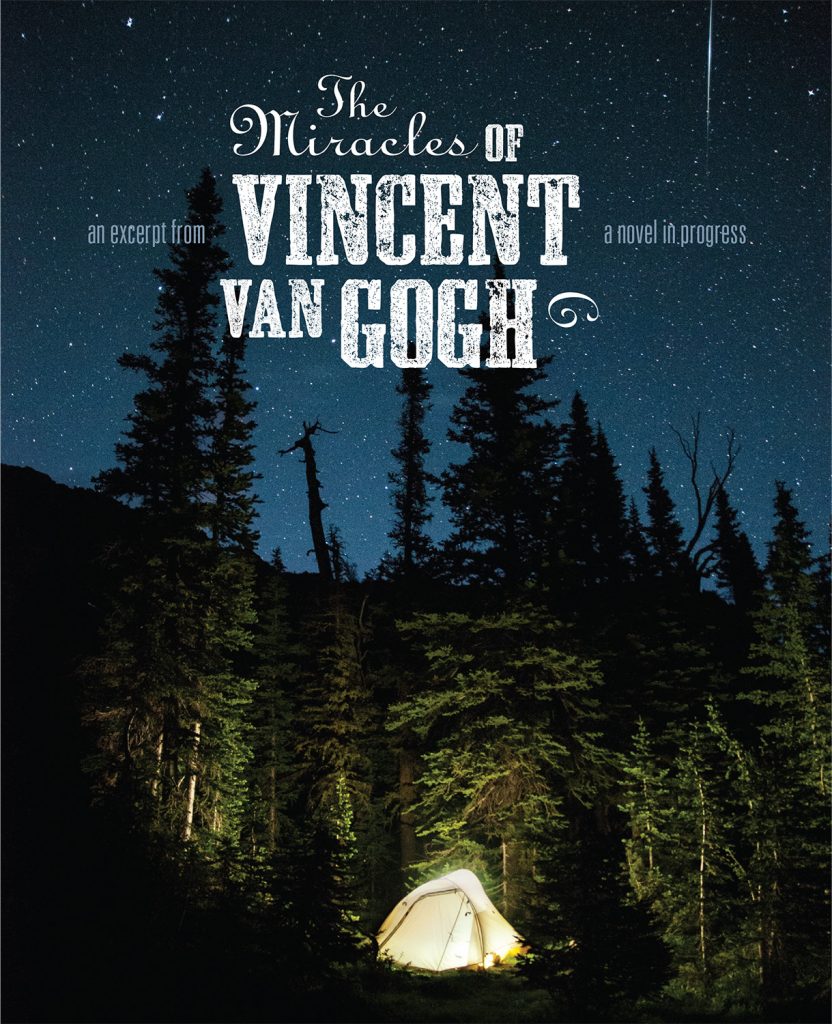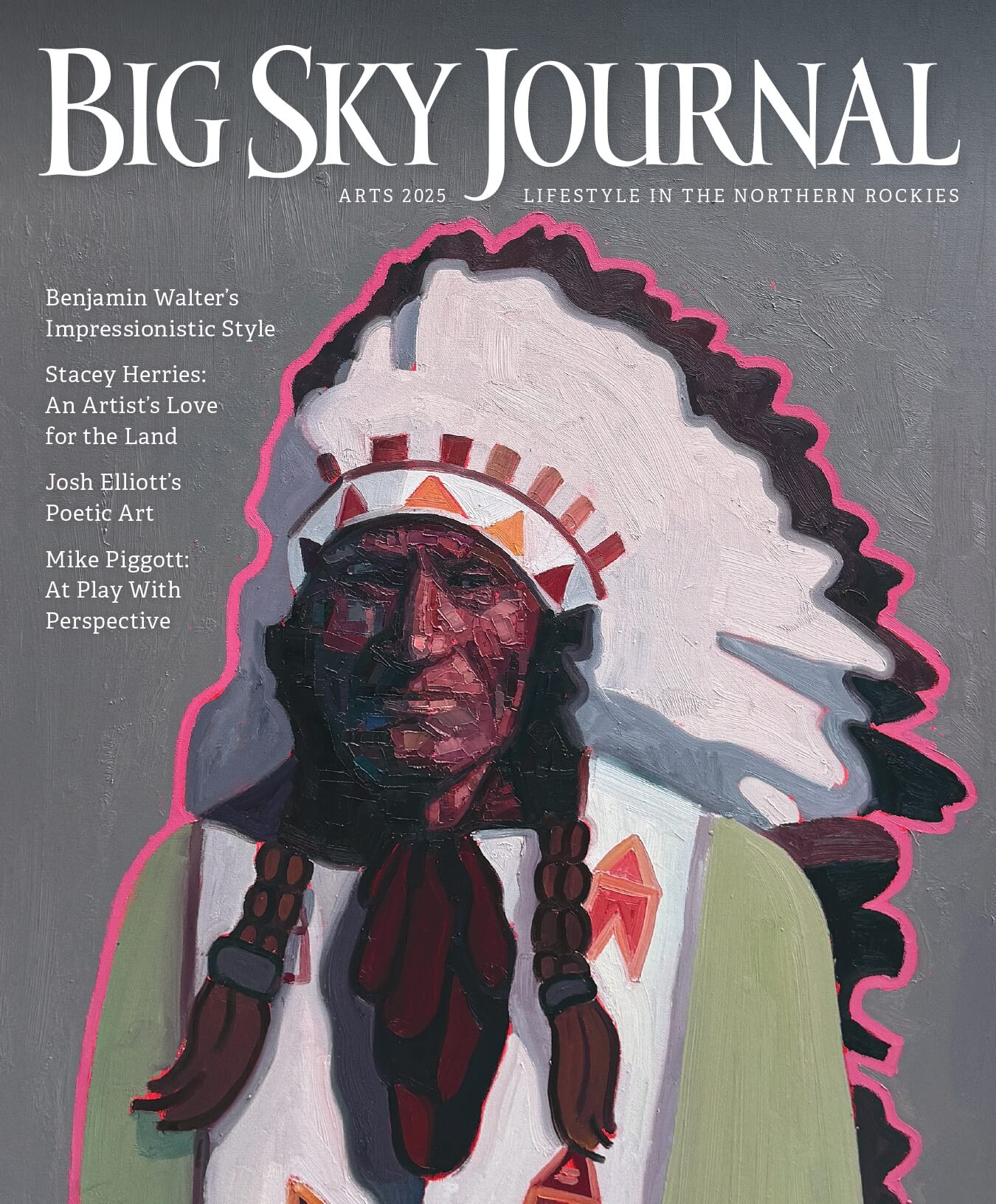
30 Nov In Progress: Shann Ray: American Empathy
“We live in the house of unspeakable gratitude in the city of hunger.”
— from Mystic Lake, The Beartooth Range
by Shann Ray
I would have first heard the name Ferch some 35 years ago, the summer we moved to Livingston, Montana. It was 1982 and I was 12. Tom Ferch was coaching the Park High basketball team, and his two sons, Kral and Shann, were the standout stars.
In small-town Montana — long winters, fierce winds, maybe 100 kids in a graduating class — if the basketball team’s winning, the high school auditorium becomes a de facto community center. It’s like a warm stove in a cold room, the pivot around which everything else swings. We went to the home games as a matter of course.
Kral was the older of the two brothers, dark-haired, taller. His senior year he led the team to a state championship. And then Shann, blond, slightly shorter but quicker, repeated the accomplishment two years later. The brothers had markedly different playing styles, but they had in common their 25, 30, 35 points a game. It was improbable, watching these guys play: the jukin’, the jivin’, the fake passes, the crowd-pleasing dunks. It was art on hardwood. Baryshnikov with round ball. For a child just on the verge of adolescence, it was something to aspire toward.
Imagine then my delight when, six years ago, I got a phone call from Shann. I was instantly the 12-year-old kid again. He was writing fiction (under the last name Ray, a variation of his mother’s middle name), and he had a collection of short stories he wanted to share. It had been chosen for publication by Robert Boswell, and would eventually win the American Book Award. I was happy for him, and maybe just a touch … envious? Not easy to admit but there it is. This is my turf, bub. After I started reading, however, all that went away and I was just astounded. Good lord. Where did this come from?
Turns out, Shann found his calling in fiction relatively late in life. After Livingston, he went on to play college ball at Montana State University, and then professional ball in Europe. He earned a Ph.D. in psychology, then dual MFAs in fiction and poetry, and landed a professorship at Gonzaga teaching leadership studies. But the watershed moment for him, in the story he tells of his evolution as a writer, was when he and his wife decided to trade reading lists. Ten books that would give each of them a glimpse into the sensibilities that had helped shape the other. Shann is dismissive of the books he gave his wife (“She’d already read them”), but she gave him War and Peace and Candide, Anna Karenina and A Tale of Two Cities. “After I read her 10,” he told me recently, “I said to myself, I haven’t been a good citizen of the world. Those books, all of them, told me that life is way beyond what I’d envisioned.”
As he put it, the life of fiction came alive, and the years that followed were a period of awakening for him: the synthesis of an exceptionally well-developed moral sensibility (he’d always had an affinity for social movements) paired with a compelling set of life experiences. The body of work that has emerged from that crucible — poetry, stories, an applauded novel, American Copper — feels to me unique in the landscape of American letters. It manages to consider some of the most unfortunate aspects of the human condition (racism, adultery, jealousy) but without losing an essential gentleness of spirit, an overarching graciousness.
Elsewhere, Ferch has expressed admiration for both Toni Morrison and Michael Ondaatje, writers who marry a love of language with deep empathy, with a sense that we’re all in this thing together. Their message is one that you can find in Ferch’s work as well: Be kind, be joyful, love one another even in the face of despair.
Ferch’s first book of stories, American Masculine, ends with a story called “The Miracles of Vincent Van Gogh.” It has as its protagonist John Sender, a Montana loan officer displaced to Seattle. It’s a story about the burdens of debt and obligation, the implications of borrowing and owing, not only in a financial or physical sense but spiritually as well. His novel in progress takes the characters from Van Gogh and expands on them, follows them. It’s a book, Ferch said, that’s “about what we borrow but may not be able to repay. Or even understand. It’s a novel about intimate union and about the history and tradition of love in the masculine extended through the feminine.”
Late in our conversation, Ferch added, “We had the Age of Romanticism and the Age of Enlightenment, and now maybe we have the Age of Enragement. Across the nation, it’s so hard not to be enraged. The other side of that, it’s also hard not to be apathetic. Maybe those are two sides to the continuum, a teeter-totter of rage and apathy. This novel is trying to encounter those polar elements of abandonment and rage. It’s trying to approach the fracture in a different light.”

An excerpt from The Miracles of Vincent Van Gogh, a novel in progress
Written by Shann Ray
Yesterday he’d been in Seattle, in the high-rise that housed the cubicle where he did loan work. Today he was back in Montana on the crown of the continent. He couldn’t fathom how much he wanted to kill a man. He’d been unable to tell his mom and dad, though likely they reasoned as much. His fiancé Samantha’s own kin, no less, her own brother. His heart felt hollow and high in his chest. He dismounted and unloaded his wares, removed the saddle and hand-brushed the sweat from Charlie’s coat until the horse was dry and happy. He clucked once, saying “eat” and the horse shook his mane and moved a length away bending his head to the grass.
The faint smell of grizzly was in the air, a dank musk he’d grown accustomed to in the years living so close to wilderness. Still it never failed to elicit fear, and that’s healthy, he reminded himself: fear. Better to taste it than ignore it. Other than with Samantha, his life in the city was a work-a-day living that held no fear, just a numbness that crept into his bones like cancer.
He stood the tent on the lee side of a tree bole in the flat between the roots. A wall of rock behind him. He refilled his canteen from a nearby stream, the southbound rivulet of Ferret Creek that would join the Lynx Basin tributary east of the confluence at Cut Bank and Two Medicine and meet the Marias and eventually the Missouri, a nation later falling into the Gulf of Mexico to reach the Atlantic through the Florida Straights between the U.S. and Cuba. He gathered kindling and dry wood and a few stones. He set the stones at an angle and built a banked fire over which he cooked the cuts of pheasant and deer steak. He’d shaken the meat in a Ziploc bag of flour with salt and pepper. These meals, though he’d had them from a boy, fulfilled in him something he couldn’t name, and when he was done he leaned back with his head on his saddle viewing the sky flare in the west. He lay there for a long time welcoming the oncoming night, how it subdued his spirit and made him blend with the darkness. As the fire glow came down to nothing he was at rest among the stellar abundance.
His horse was near but it was the color and brightness of the dark, manifold with stars, that gave him a feeling of deepest intimacy. No one is alone, he thought. Even in the untold harm we endure. Some bear what must be borne, Samantha had shown him as much. He wanted to be one of those, the ones who take courage. He wanted to be worthy of her.
He’d been raised on the intimate as home, as wilderness, as woman, as man — not dependence, paralysis, independence or even liberty, but a zenith of partnering below which one lives and moves and finds meaning, regardless of external conditions, the grave degradations and injustices. The illness and mortality. That’s why his grandfather’s suicide had shaken him, it symbolized a gun set to the mouth of intimacy. Rape was no different. He’d felt sure with how Samantha’s presence had held him when they’d fallen for each other, she and he could give wing to love. He was afraid now, for her and for himself, based on what she’d told him. Based on her own brother, imprisoned not for nothing, but for raping her when she was young.
So John had come to the mountain to listen.
The moon a scythe behind a single cloud in the southeast, the lines of a poem his mother memorized with him as a boy came to him. The night was uncommonly warm. He remained where he was. We only live, he thought, only suspire. He thought of love crafting of each person a shirt of flame.
In the deep dark the night was broken once by the call of a wolf in the distance. He woke, his upper body cold, and entered the tent and slept to sunrise. High up in a tree 50 yards from camp, he’d cached the food along with the dish and utensils he’d washed in the creek. Now he walked to the creek again, knelt and washed his face and took a long draught of water, the chill of it filling him with vigor. He stood and eyed the horizon where the long line of limestone ridges was swept with light.
Samantha had unburdened her soul to him with such power it had laid him bare, and he had run from it though he knew he needed to turn and run back and love as she envisioned love: brave and full, steady and determined. He walked among the trees beside the creek bed. And what of her brother? he thought. He wanted to tear the veil of her brother’s life in two and watch him disappear into a rift in the earth. He would remove her brother as he would a stain, vigorously. But when he thought of family, of Samantha as family and her family as his family, he remembered her voice and that he had no real recognition of what must be her most hard-won ground. He’d read her feelings, he thought, and her feelings were that she wanted him to overcome himself. She, like his mother, detected his pride. They both wanted him to face it and move past it to a place of greater strength — where more strength was required. They called him higher.
She and his mother were very much like each other in two ways, he thought. One, they were guileless about their own faults, though it was true they both had some vanity in how they carried themselves with near haughtiness toward other alpha women, and in their self-protective isolationism regarding family. Certainly, his mother could thorn his father with her angers and anxieties, and certainly Samantha could do the same. But two, they wanted their men guileless as well: They hated undue pride in themselves and others, and hated it in their men. When they were together with each other or with other women they loved, they didn’t talk about men, or rarely talked of them. They talked of life and each other, the past, present, and future. Their sisterhood was a universe of its own; a place he was generally left out of, even if he secretly desired to be let in.
He cut south descending away from the creek toward the camp again. He’d check the cache and set up his fly rod before taking Charlie to Battleground Lake, a mile west, where he knew the big brook trout fed on freshwater shrimp, hungry for any fly he dropped on the surface. Preferably, he thought, an Adams Parachute or a Royal Wulff.
Unknowingly, as he skirted the forest he walked just upwind of the biggest bear in the region.
The bear lifted his nose. The bear heard John’s steps.




No Comments